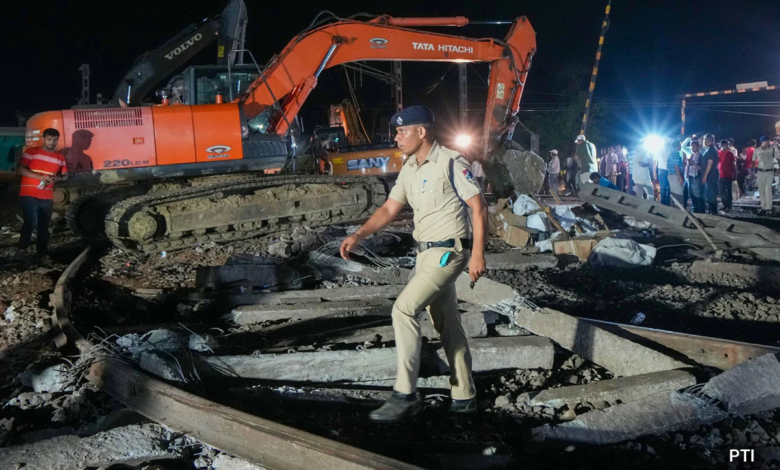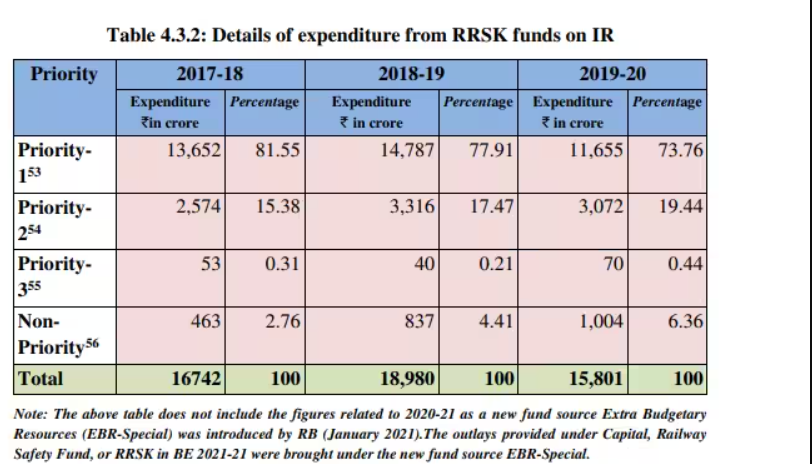Odisha train accident: 2022 CAG report shows a decrease in budget allocated for track maintenance

While Union Railway Minister Ashwini Vaishnaw said on Sunday that the “root cause” of the triple train accident in Odisha’s Balasore district had been identified, the Comptroller and Auditor General’s 2022 report ‘Derailment in Indian Railways’ raised serious concerns ranging from the failure to use a special railway fund on priority tasks to a decrease in money spent on track renewal.
The RRSK fund
The Rashtriya Rail Sanraksha Kosh (RRSK) is a reserve fund that obtained a corpus of 1 lakh crore over five years beginning in 2017-18. According to the research, poor use of funds was one of the key causes of the 289 derailments (26%) associated to track renewals out of a total of 1127 derailments from 2017 to 21. Apart from a decrease in overall RRSK expenditure on key projects, the outlay for track renewal operations was lowered, and previously allotted funds were not used correctly, according to the report. According to the research, this will negatively influence the timely completion of track renewal activities.
“The overall RRSK expenditure on priority-I works decreased from 81.55% (13,652 crore) in 2017-18 to 73.76% (11,655 crore) in 2019-20.” According to the report, the allocation of funding for track renewal works fell from 9607.65 crore in 2018-19 to 7417 crore in 2019-20.
Due to a “adverse internal resource position that defeated its primary objective of supporting absolute safety in railways,” the railways experienced a shortage in deploying funding to RRSK. However, spending on non-priority sectors increased from 2.76 percent (463 crore in 2017-18) to 6.35 percent (1,004 crore) in 2019-20, which was ‘against the guiding principles of the RRSK deployment framework’.

What does the report have to say about track renewal?
The Indian Railway (IR) needs to renew 4,500 km of its total track length of 1,14,907 km yearly. However, because to financial constraints, progress in track renewals has been steadily declining over the last six years, according to a White Paper cited in the report. The Standing Committee on Railways (2016-17) stated that the track renewal targets set are not in accordance with the real need on the ground.
Only 3.01% (20.74 crores) of the total spending of 689.90 crores was used for track renewal on Western Railway, one of the busiest sections, in 2019-20. According to the research, various railway zones have been surrendering revenue in recent years. The report also cited funding restrictions, citing a decrease in allotment from 9,607.65 crore in 2018-19 to 7,417 crore in 2019-20, as a reason for the shortcomings in maintaining safety-related activities. T
Due to a material supply difficulty, the full track renewal (CTR) works of selected divisions of the IR did not meet their target from 2017-18 to 2019-2020. The report stated that the railway administration failed to execute the recommendations of the Standing Committee to improve the physical and budgetary targets for track renewals to assure safety.



